

Reading, Talking, and Playing with children develops healthy brains. UWNU's Read. Talk. Play. Every Day! is a Box Elder Coalition effort designed to help parents support their children in developing communication skills, relational skills, emotional skills, and vocabulary to help them be successful in school and life.
Caregivers play a vital role by helping children develop these essential tools through everyday interactions and campaigning for early childhood literacy.
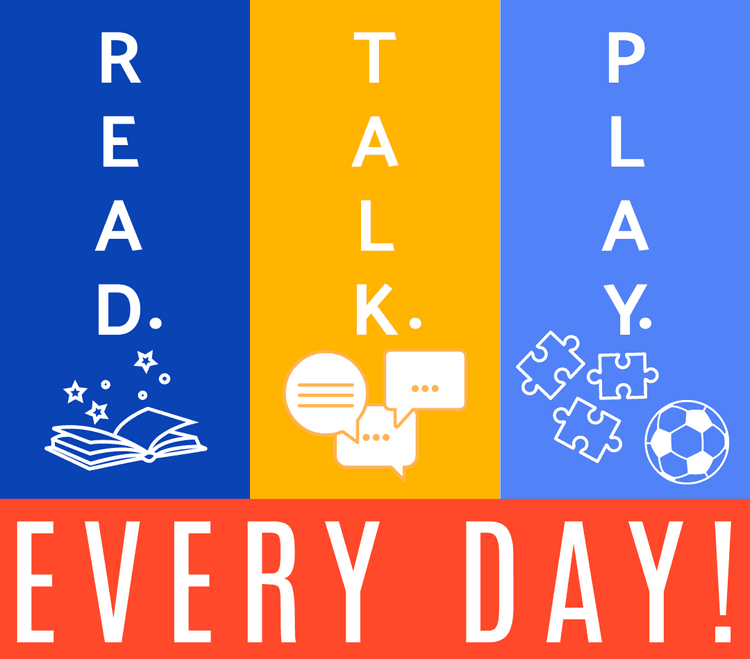
space
Below, we break down activities and tools you can utilize to prepare your child for kindergarten. They are organized by Read, Talk, or Play, and by age group.
Other UWNU resources for early childhood:

Reading to young children inspires a joy in learning, strengthens parent-child bonds, promotes early literacy, and introduces basic learning concepts like turning pages.
You can engage in many reading activities to prepare your child for kindergarten:
Further resource: "24 At-Home Learning Activities to Share with Parents of Young Children," Brookes Blog.

Talking to children - even before they can talk back - helps then learn words and build communication skills.
You can engage in many talking activities to prepare your child for kindergarten:
Further Resource: Talk to your baby | My Education, Our Future (Youtube Video)

Playing teaches children to get along with others, supports cognitive growth, and helps children understand the world around them.
You can engage in many playing activities to prepare your child for kindergarten:
Further resources:
TOP TIPS FOR PARENTS - BY THE AGE

READ
Your baby is learning and growing every day. Talking and reading to them lays the groundwork for language development.
TALK
By 3 months, your baby develops basic social skills, such as a social smile, increased communication, becoming more expressive with face and body, and imitating some of your movements & expressions.
Talk freely: make eye contact, make expressions, and change the tone of your voice while you hold a simple conversation. This lays the groundwork for language development.
Make noise and respond: Sing, read a story out loud, react to your baby's coos and gurgles. Coo at them and make interesting noises to encourage your baby to lift their head.
PLAY
By 3 months, your baby develops basic physical and sensory milestones, such as raising their head & chest during tummy time, stretching and kicking on their back, opening/shutting their hands, grasping and shaking toys, following moving objects, recognizing familiar objects and people at a distances, and using hands and eyes in coordination.
Hold your baby: Skin-on-skin contact, letting your baby grasp your little finger, and letting them touch your face helps them feel safe, secure, and loved.
Toys: Give your baby toys with different textures or bold patterns.
Tummy time: Place your baby on their tummy to play (this works great as an outdoor activity too!). Many newborns get fussy or upset when on their tummies, and that's okay. Keep tummy play sessions brief at first, and keep trying.
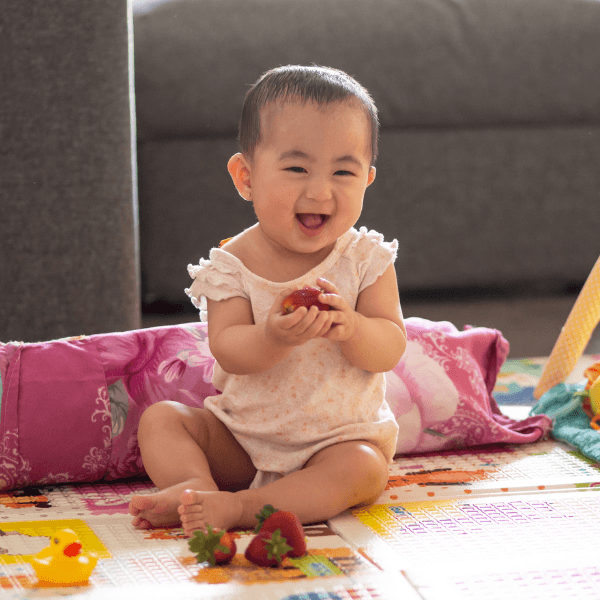
READ
Now is the time to make reading a solid part of you and your child's every day routine. They will enjoy a variety of books in a variety of settings: waterproof books at bathtime, cardboard books with bright colors at playtime, and soft books with large pictures at bedtime. Reading to your baby helps speech and thought development.
Read at bedtime: Start with books with large, brightly colored pictures. Describe what's happening on each page, beyond just the word written. Point to and name common objects. This would make a good addition to your routine before putting your baby to bed.
Find a library near you: Library Finder by the Institute of Museum and Library Services
TALK
As your baby grows, you can look for milestones in social skills and cognitive thinking. By 7 months, babies should respond to expressions of emotions, appear joyful often as their personalities start to come out, find partially hidden objects, explore with their hands and mouth, and try to reach items that are inaccessible.
Just talk: Just like when they were newborns, talk to your baby as you go about your day. Ask questions and react to your baby's noises. Describe what you see, hear, and smell around you. Repeat simple words such as "baby," "cat," "dog," "hot," and "cold." Vary your tone of voice and facial expressions to help communicate ideas and emotions.
Play lullabies: Music can calm, entertain, and teach your baby.
PLAY
Between 4-6 months, your baby is becoming more aware of the world around them and they want to explore. Playing with them not only gives them an opportunity to do that, but provides a bonding experience between you and your baby. By 7 months, your baby will have evolved motor skills (moving limbs more purposefully, rolling over, better head control, sitting up by their own), be interested in mirror images, reaching with one hand, and using raking grasp. They're also developing hand-eye coordination, clearer vision, and other new sounds.
Change your baby's positions: Lay your baby on the tummy and encourage them to practice their rolling skills or hold their head up by making fun sounds and holding a colorful toy.
Offer simple toys: Colorful, sound-making toys are perfect for this age. To avoid overstimulation, put out only one or two toys at a time. You can even have a toy rotation: give only a few toys to your child and hide the rest away. When you change them out with different toys, they feel new and the baby never gets bored!
Play cognitive games: Peek-a-boo, patty-cake, "Where are your toes" and find the toy are great ways to develop your baby's cognitive thinking skills.
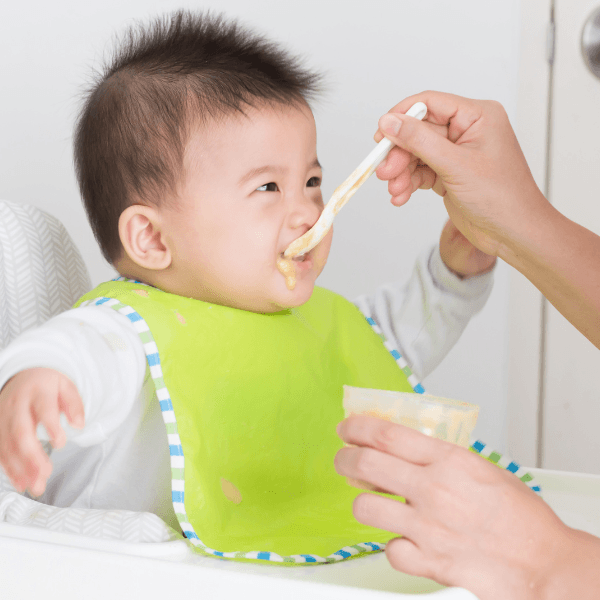
READ
As your baby grows more vocal, continue developing language skills by reading and telling stories together every day.
Types of books: Cardboard and cloth are best at this age to make turning pages easier.
Pictures: Around 9 months, your child will start to look at the correct picture when an object/image is named. Use this in your storytime to further develop their cognitive thinking.
TALK
At around 9 months, your child will start to act shy or anxious with strangers, and test parental responses.
Talk and listen: Hold your baby while you talk with them. Ask them questions and respond to their smiles, babbles, or other noises. Recognize feelings and talk to your child about them, even if they can't talk back yet.
Narrate your motions: Tell your child about the daily tasks you are carrying out. Talk to them at an age-appropriate level, with lots of inflection and facial emotions. This will help with their language and emotional skills development.
Support their communication: Read this article by Zero to Three: "How to Support Your Child's Communication Skills."
PLAY
Every day, your child is getting more and more mobile. Around 9 months, your child will get into a sitting position without help, army crawl around the house, assume hands-and-knees position, pull themselves up to a standing position, get from a sitting to crawling position, and walk while holding onto furniture. As they play, they'll prefer certain people and toys and imitate other people in play.
Encourage exploration: Your baby is very interested in the world around them, and they want to learn (and touch!) anything they can. Baby proof your house and let them explore with safe objects. Baby-proofing can include: putting away anything poisonous, poses a choking hazard, or may break into small pieces. Place cords out of reach. Cover electrical outlets and use stairway gates (gates between rooms can keep your fast-moving baby in safe areas as well). Install child locks on doors, cabinets, and toilets. Remove from the rooms where your baby plays: furniture with sharp edges, lightweight objects such as plant stands, small tables, potted trees, and floor lamps (they will try to use these to get to a standing position!). Anchor bookcases, televisions, and stands to the wall.
Cause-and-effect: Help grow your child's confidence by teaching them "if you press this button, this will happen." For example, if you press a cow button and the book moos.
Introduce new games: By now, your baby has probably mastered peek-a-boo, patty-cake, and other games you have been playing together. Get creative in game playing that encourages further motor skills development: arrange cushions that they can crawl over/around.
Outside: Go for walks, look at birds and other animals, lay on the grass and tell stories together. Take inside games and move them outside to get sunshine and fresh air.
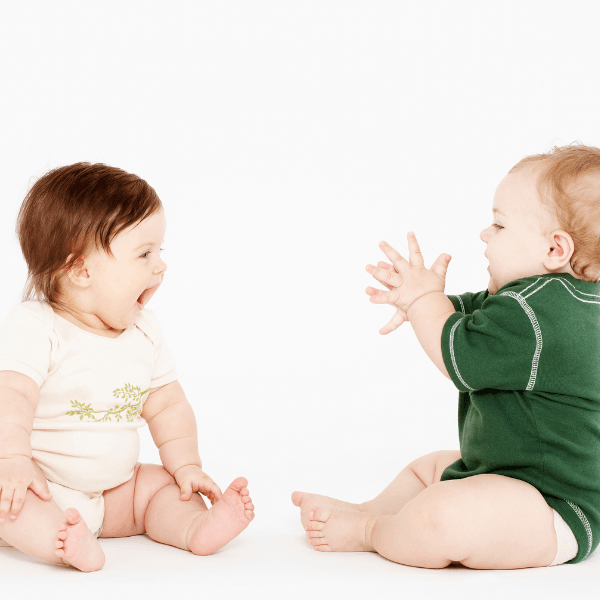
READ
By 12 months, your child will develop new cognitive skills: they will understand that objects exist even when they are hidden (object permanence). They'll start pushing buttons on toys or remotes and "talking" on phones.
Picture books: At this age, babies love looking at other babies, especially in books! Share picture books with other babies and children. Show them photo albums and talk to your child about each photo. Ask questions, have them point to photos, and react to their responses.
Nursery Rhymes: Sing songs that repeat and have hand motions to connect physical movement with language. Songs like The Wheels on the Bus are perfect for this.
TALK
By this age, your child will respond to simple verbal requests. They'll start using simple gestures, such as shaking the head or waving bye-bye. Your child's verbal communication will take on a new tone, and they might start using full words like "mama" and "dada," and exclamations like "uh-oh!" They might cry when you leave and feel shy around strangers.
Adult speech: By this time, using adult speech over baby talk will teach your baby to imitate words correctly. If your family speaks more than one language, speak to your child in all languages you speak to help them learn all the languages at the same time. Talk to your baby all the time and let your child reply.
Set limits: Only use "no" for safety situations, otherwise the word will become meaningless. For other situations, explain to your child why the action isn't okay or why a situation is dangerous, and redirect your child's attention. Use signs and signals to let your child know how to act. Give a shoulder pat or thumbs up when your child is doing something good.
Saying goodbye: Your child will probably have a hard time when you leave - that's okay! Talk them through this difficult learning stage. Don't sneak out. Instead, say goodbye. Explain that you are leaving, but that you are going to return. Give your child a teddy bear or blanket that you use together to help them feel close to you.
Eye contact: Look at your child when you talk or read with them. Let them know they are heard and understood.
PLAY
Natural curiosity will really soar during this time. Encourage your baby's natural curiosity by playing with them. Between 9 and 12 months, babies will sit without help, pull themselves to a standing position, walk with furniture, and crawl. By 12 months, your child might even take their first steps without support. Your child's hand-eye coordination is getting better too: they'll feed themselves finger food and hold spoons by grasping things between the thumb and forefinger. They might enjoy banging things together, taking things in and out of a container, and poking things with their fingers.
Keep your home safe: Your baby is very interesting in the world around them, and they want to learn (and touch!) anything they can. Baby proof your house and let them explore with safe objects. Baby-proofing can include: putting away anything poisonous, poses a choking hazard, or may break into small pieces. Place cords out of reach. Cover electrical outlets and use stairway gates (gates between rooms can keep your fast-moving baby in safe areas as well). Install child locks on doors, cabinets, and toilets. Remove from the rooms where your baby plays: furniture with sharp edges, lightweight objects such as plant stands, small tables, potted trees, and floor lamps (they will try to use these to get to a standing position!). Anchor bookcases, televisions, and stands to the wall.
Keep playing! Play with your child like you have in the previous months: peek-a-boo, make-believe, blocks, etc. Take them outside whenever you can.

READ
Early toddlers love books that they can hold and carry around. They are now at the age when they will let you know they are ready for storytime - they will bring you a book or a bring you to a book.
Interactive reading time: Prompt your child to point to characters and objects when you're reading to them. Read books with children, families, and animals, and have conversations with your child about what they are seeing in the pictures.
Board books: Books with a small amount of words per page that repeat and rhyme are perfect for language and early literacy development. Provide books with topics that your child has shown interest in, like animals, babies, plants, or even dinosaurs.
TALK
Toddlerhood is a tumultuous time as the struggle between the want to be independent and the need to feel safe. Their emotions are developing at a fast rate which will often lead to tantrums. It is important now to talk and be responsive to your child not only to develop language skills but to support them and make them feel safe.
Learn about toddler social skill development: Read about social and emotional developments to expect from your child and they transition away from baby-hood and into a toddler. "Toddler Development: Tips for Navigating Their Emotional World."
Encourage talking: Start with words like "hello" and "goodbye," and praise them whenever they are able to form these words. Praise them when they repeat words or try to speak with others, even if they aren't super clear. Add to what your child says. If they say "kitty" you can add "Yes, the kitty is soft!"
Listen: Your child is going through a lot of changes, and they are still learning productive ways to express themselves. Listen to what they're trying to say and respond.
Repetition: When your child shows interest in an object, name the object and talk about it. Repeat the name of the object often. An example from UNICEF: "If they point to a ball, you could say 'do you want your ball? Here is your ball! Let's play with the ball!'"
PLAY
At one year, your child is ready to start moving, and maybe even walking, all on their own. They're ready to start imagining and playing in more abstract and invested ways. By 18 months, your child has a better understanding of good/bad and rules/consequences. Use play time to introduce them to limits and behaviors that are okay/not okay.
Screens: The American Academy of Pediatrics recommends your child doesn't watch television until they are at least 2 years old.
Flat surface playing: Place your toddler on flat surfaces to help them develop their gross motor skills like crawling, moving their limbs, and getting themselves into a sitting position.
Allowing independence: Give support and guidance to your toddler while you are playing. However, as you notice your child doing things on their own, progressively reduce your support to let them build those skills. Still play and guide them, though.
Play social games: Hide things and encourage them to find it. Get them excited about getting dressed and have them help you by asking them to put their leg/arm out, standing up, etc. Teach your child to imagine games and solve problems.
Play dates: Schedule time for your baby to play with other children, with you, and alone.

READ
Now is the time to read aloud! Your child will start to say short sentences (2-4 words). They repeat words they have overhead. They can complete sentences in familiar books.
Give your child a "part" of story time: Read about the benefits of reading together with your 2-year-old from PBS Kids: "Reading Aloud."
Introduce writing: Give your child a paper and a crayon to color, draw, or pretend to write.
TALK
According to Zero-to-Three: "In this third year, you will see a big jump in your child's thinking skills. He will start to appreciate humor and jokes. She will be able to come up with solutions to more complex problems... They know that others have thoughts and feelings that are different from their own... It is also an amazing time when your toddler's skills and personality continue to deepen and grow." As your child becomes more aware of the world and develops more advanced skills to express themselves, they will be curious and excited. Questions and tantrums will dominate your conversations with your 2-year-old.
Develop your child's curiosity: Respond to questions with enthusiasm and excitement. Go places with them or wonder out loud, and have them question along with you. Read the Mayo Clinic's 8 tips to nurture and develop children's curiosity.
Ask questions: While going through daily routines, ask your child questions about what you are doing and what the two of you are seeing. This gets their mind working and lets them know you are interested in their ideas.
Establish patterns: Stick to a daily routine and use language to explain the patterns you are creating. This supports logical thinking and increases vocabulary.
Talk about feelings: Help your child develop an emotional vocabulary. Put words to feelings. If you recognize the emotion in your child, express that to them: "I see that you are sad we're done playing with blocks." This helps your child understand and cope with their emotions.
Survive Terrible Twos Tantrums: Try to stay calm instead of getting angry. Don't use physical punishment like spanking. Instead, give consequences that relate to bad behavior (for example: take your child out of the store if they are acting out). Stay in control - don't allow your child to boss you around just so the tantrum will end (for example: don't buy your child a treat just to stop them crying). Avoid situations that may cause problems (for example: if your child tends to throw tantrums when they are hungry, make sure to carry snacks around).
PLAY
Between ages two and three, cognitive thinking skills develop significantly along with their curiosity. Your child will be more independent and even more defiant. They will point to things when they're named, recognize familiar people, sort shapes and colors, find hidden things, and maybe even start developing a dominant hand. Your child will start following simple instructions. They will also start running, kicking and throwing balls, climbing up and down furniture without assistance, and can copy straight lines and circles.
Screen Time: Around 18 months - 2 years, you can introduce your child to high-quality children's media. However, the time should be moderated (maximum 1 hour a day) and you should always watch it with them to help them understand what they are seeing. Read the American Academy of Pediatrics' recommendations for screen time.
Pretend play: dress-up, act out stories, provide materials (costumes, toy dishes, child-sized cleaning materials, paper, blocks, play food...). Use everyday toys to increase imaginative play: a block can be a zoo animal and a ball can be a plane. Let your child take the lead on all pretend play. This helps develop logic and problem solving skills.
Exploration: Go for nature walks. Play with sand and water. Give them objects they can explore (for example, put marbles into a water bottle and secure tightly. Give to child to shake and observe how the colors interact with the water). By exploring objects during play, your child will develop problem-solving skills by figuring out how things work.
Problem solving: Encourage your child to try different solutions rather than fixing a problem yourself (for example, if they are having trouble sorting, instead of just showing them where it goes, suggest they try the block in a different hole in the shape sorter). Have your child sort and categorize throughout the day (for example: separate laundry into different clothing items, organize forks, plates, and spoons at dinner time, and at clean-up time put similar toys next to each other).
Art: Create basic art projects with your child, like drawing, finger painting, pretend writing, tracing lines and circles, etc.

READ
Toddlers around 3 are ready to actively participate in reading time. They can memorize books that you re-read with them.
Familiar reading spaces: Visit the local library often. Create a reading nook in your home to read together and for the child to explore books on their own.
Read together often: Read from books, play rhyming and language games, point out words they may recognize from reading wherever you go. Provide lots of reading and writing materials for your child to explore.
TALK
At 3 years old, your child should be speaking simply but clearly enough to be understood. Their vocabulary should range from 500-900 words. They'll speak in sentences starting with 2-3 words and evolving to 4-5 words per sentence. They can now remember rhymes and lyrics, understand past tense, long sentences, prepositions, and pronouns. They refer to themselves using their own name and can recognize and name colors.
Counting: Practice counting with your child. Listen to them count and praise them for a good job. Encourage them to keep trying when they stumble.
Talk to them normally: Your child can now understand more complex sentences, so talk to them as an adult. Encourage them to use "Please" and "Thank You," and to use words over motions to express what they want or need.
Survive the tantrums: Your child might start fighting bedtime, so stick to a bedtime routine include what time to go to bed and how many books you will read. If you stay calm and try to problem solve why your child is throwing a tantrum, it can help your child calm down as well and you can reach a more amicable end to the tantrum.
PLAY
Your child will start to show more independence. This is also the prime time to teach them how to play well with others. At 3, your child will run and jump easily, go up and down stairs unassisted, stack blocks at least 10 high, easily draw straight lines and copy circles, feed themselves, and concentrate on tasks for up to 10 minutes. Toddlers are forever curious; continue to fan the flame of imagination and curiosity as you approach play with your 3-year-old.
Screen time: Don't exceed 1 hour a day. Sit with your child and watch together high-quality children's media. Help them understand what they're watching, either by explaining it to them or listening to them explain it to you. Read the American Academy of Pediatrics' recommendations for screen time.
Learn While You Play: Kids learn best when they're having fun, so introduce math, language, and social skills into your play. Teach your child about money, about measurements in cooking, the garden, or temperature. Get the full toolkit from PBS: "Measurement"
Sharing: Give your child a toy in return for a toy they are playing with. Let them see you share with others. To avoid conflict, put away toys you know your child will not share before play dates. Practice sharing by playing indoor and outdoor games where you take turns (for example, board games or hide-and-seek).
Art time: Foster your child's fine motor skills by providing art materials like crayons, pens, pencils, or chalk so they can learn to hold writing utensils and pretend to write.
Imagination: Pretend play with dolls, cars, toy household materials; Imaginative play with playdough or clay.

READ
To help prepare your preschooler for kindergarten, continue interactive reading time. Have your child follow along and finish sentences of familiar books. Take turns reading (even if they can't read, they can make up a story!). Ask each other questions about the stories. Now is also the time to start really introducing letters and writing.
The alphabet: Select a letter a day until you have covered the entire alphabet. For example, for your "a" day, you and your child can do activities and eat foods that start with the letter "a." Take that day to help your child form the letter and find it in common words.
TALK
As your child goes through the final year before kindergarten, their language skills will continue to develop, along with their social skills. How you talk to them, and what you talk to them about, will significantly impact your child's compassion and understanding of their own emotions.
Use positive words: Try to avoid "no," when safety is not the issue. Use positive words and alternate actions instead. For example, say "Let's jump off the pillows instead of the bed." Explain to them consequences so they understand why an action is wrong.
Survive the tantrums: If your child breaks down, stay calm instead of getting angry. If you can remain calm and problem solve, it will help calm your child down as well. Take your child away from the situation if at all possible.
Ask questions: At this age, your child will be able to talk about things that happened during their day, and they can answer simple questions posed to them. Ask what they did that day, even if you know. Ask them questions about every day activities and objects, such as "what is a coat for?" or "What is a crayon for?"
Teach compassion: Teach your child about compassion. Model comforting those that are sad/crying. Encourage and help them to call a loved one, send a note, or give a compliment. Read how to help your child develop compassion from PBS Kids: "Small but powerful ways to help build your child's compassion for others."
PLAY
At age 4, your child will be able to unbutton some buttons, hold writing utensils between their finger and thumb instead of a fist, and catch a large ball most of the time. They will start to avoid danger, like not jumping from tall heights. They'll want to play with their friends more, and might even ask to play with children when none are around. More than ever, they will want to explore and play with their imagination.
Screen Time: Don't exceed 1 hour a day. Sit with your child and watch together high-quality children's media. Help them understand what they're watching, either by explaining it to them, or listening to them explain it to you. Read the American Academy of Pediatrics' recommendations for screen time.
Experiment: Teach them cause-and-effect. PBS Kids has developed a game called "Falling for Fun," where you drop two household items of different weights at the same time and observe the outcome. Have your child explain: did one object drop faster than the other? Why? Divide objects by fast/slow falling, and draw pictures about what was observed. Get the whole toolkit here for Falling for Fun.
Provide choices: This develops independence and logic in your child. Let your child choose between 2 or 3 things, whether that be the activity you will do together, what toys they will play with, or what books you will read together.
Set rules: At 4, your child will be able to understand more complex demands so it is time to set clear, simple rules. Use these rules again and again.
Know the limit: Listen to your child. If you push them too far, it can have a negative effect. For example, if your child is tired, don't push them to play or take them shopping. Suggest an activity that requires less energy until bed or nap time where they can sleep and regain their energy.
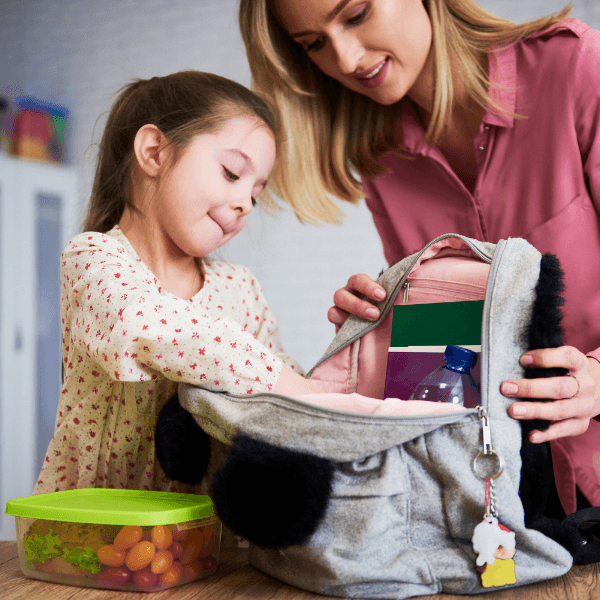
READ
According to PBS Kids: "Age 5 is a key year for supporting your child's reading skills. At this age, kids begin to identify letters, match letters to sounds and recognize the beginning and ending sounds of words. They'll start to have a basic grasp on the idea that words in a book are read left-to-right and top-to-bottom. Five-year-olds still enjoy being read to, but they may start telling their own stories as well!" Your example now is more important than ever. If you show interest and excitement in reading and words, this will leave an impression and hopefully grow a love of learning in your child.
Build your child's reading skills: Follow your child's interest by letting them choose the books they want to read. Find funny books, be a role model, and read on the go. Learn the tips and tricks from PBS Kids here: "Reading: Helping Your Five-Year-Old Become a Reader."
Build the storyteller: By this time, your child can tell a story they heard or made up with at least two events (for example: a cat was stuck in a tree and a firefighter saved it). Encourage them to tell your stories. Have them actively participate in reading time.
TALK
Your child will hit many milestones during this year. They can use and recognize simple rhymes, keep a conversation going with more than three back-and-forth exchanges, and they will be more aware of emotions. As they prepare for kindergarten, it is important to talk to them about the significant changes that will occur in their life.
Learning emotions: Discuss the emotions of characters in the books you read together. Help teach self awareness. Here are some tips from PBS Kids: "Self-Awareness."
Show respect & understanding: Respect your child and praise good behavior. Pick your battles - don't fight it out over everything or both you and your child will become frustrated. Try to let little things go.
Survive Tantrums: Your child might start fighting bedtime, so stick to a bedtime routine including what time to go to bed and how many books you will read. If you stay calm and try to problem solve why your child is throwing a tantrum, it can help your child calm down as well, and you can reach a more amicable end to the tantrum.
Prepare for Kindergarten: Talk to your child about what to expect in a day at kindergarten (for example, tell them what they will do, what a teacher is, who their teacher is, and how many children will be in their class). Take your child through the new routine before school starts (drive or walk to school and back. Walk through the school and show them their classroom and the bathroom). Be supportive and patient: listen to your child's concerns and answer questions. Finally: keep it calm at home. Stick to regular routines and continue to Read, Talk, and Play with your child.
PLAY
As your child grows through toddlerhood, introducing learning aspects into play is a great way to support their development. Your child will want to sing, dance, and act for you. They are learning to follow rules and take turns when playing with other children.
Screen time: Don't exceed 1 hour a day. Sit with your child and watch together high-quality children's media. Help them understand what they're watching, either by explaining it to them, or listening to them explain it to you. Read the American Academy of Pediatrics' recommendations for screen time.
Set Play dates: Help your child prepare for kindergarten by introducing them to other children and teaching them how to play cooperatively.
Introduce measurement in Play: Teach your child about money, about measurements in cooking, the garden, or temperature. Get the full toolkit from PBS Kids: "Measurement: Helping Your Five-Year-Old Understand Measurement and Data."
OTHER UWNU RESOURCES FOR EARLY CHILDHOOD:
spaceA
apC ew
Read. Talk. Play. aims to prepare children (0-5) for kindergarten by basing our tools and activities on the Utah Education Network's Kindergarten Readiness Checklist. We want all children in our community to enter the school system ready and excited to learn.
Regardless of how you choose to educate your child - homeschool, preschool, montessori, etc., these are the skills kindergarten-ready children are expected to know:
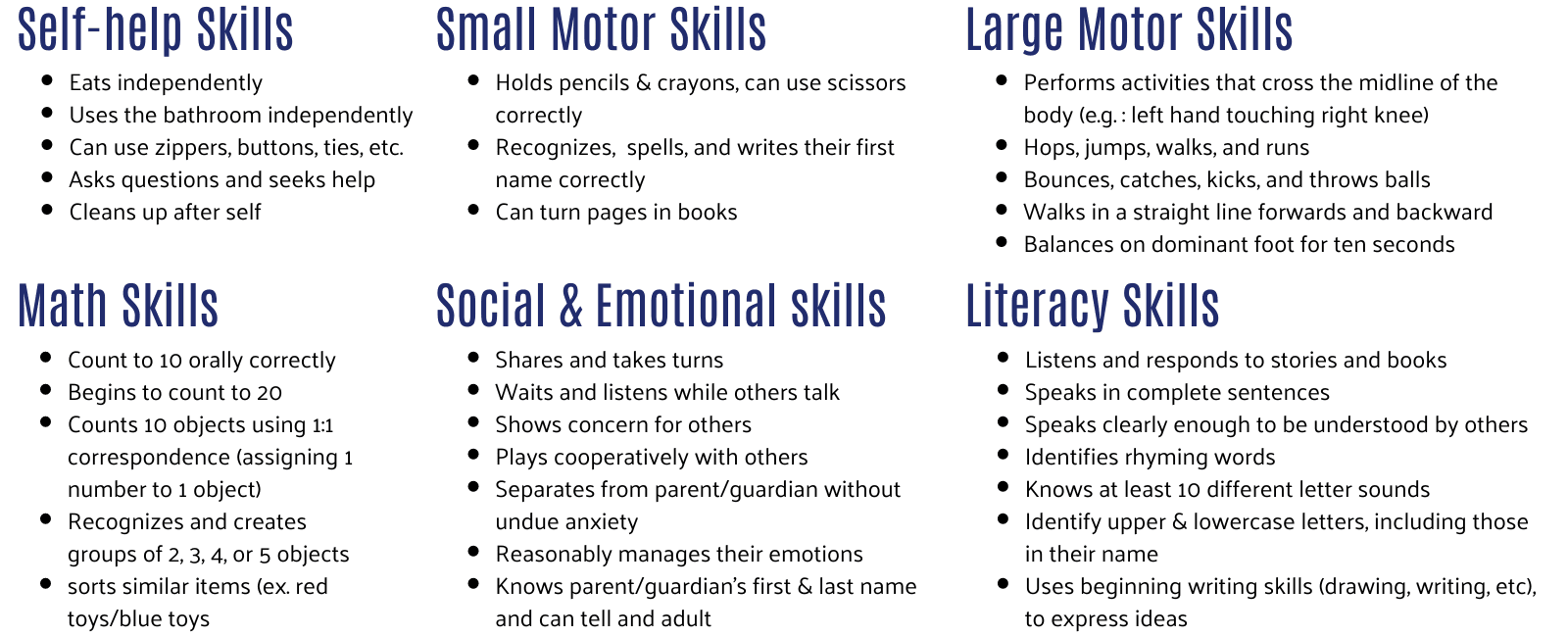
Read the full UEN Checklist here!
SPACEw
The Box Elder Early Childhood Coalition is a partnership between community members and organizations who work with children (ages 0-5) and their families. They find areas where the community can work better together to prepare children to be social-emotionally ready to engage with others and developmentally ready to learn when they enter Kindergarten.
Partners in the Box Elder Early Childhood Coalition:

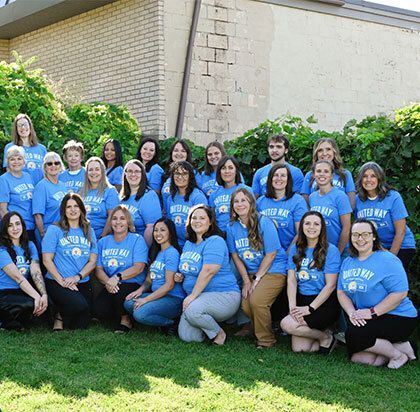
We have one life. To live better, we must LIVE UNITED.